Public
Kornelis Brochures
Kornelis Catalog
Kornelis Gallery
Kornelis Locations
Kornelis News
Kornelis Videos
If this is your company, CONTACT US to activate Packbase™ software to build your portal.
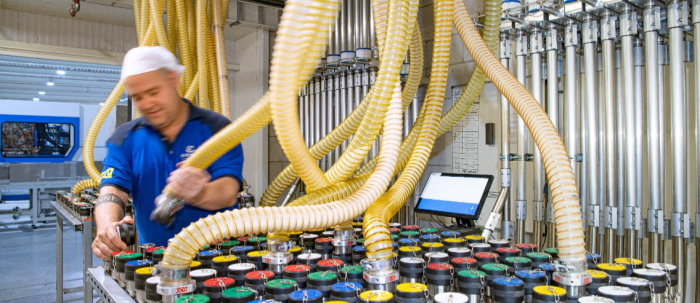

Operations manager, Sebastiaan Lem, is working daily on the pursuit of sustainability at Kornelis Caps & Closures. The process starts with a single conviction that step by step becomes widely supported by every level of the organization. At the end of the day, sustainability is about much more than a slightly thinner closure.
Sebastiaan Lem (38) has been working for four years at the company where he once did his graduation internship. Between the gaps lies a career at FrieslandCampina, where he was a successful planner, team leader and assistant production manager. The birth of his child changed everything. Lem did not want to keep taking long trips, a must in his Benelux position at FrieslandCampina, so he knocked on the door of Kornelis Caps & Closures in his hometown.
The starting point
The operations manager emphasizes that sustainability always starts with a conviction, a belief that you leave the world just as good or preferably better for future generations. After becoming a father himself, he is even more convinced of this theory. “You have to use that starting point in order to be able to have the right discussions. Because it really is a matter of principle. Sometimes sustainable projects are more expensive, but they always pay for themselves. Sustainability is much more than just making your product more sustainable. Processes and methods must also be more sustainable, and then there’s the human factor.”
As operations manager, Lem is responsible for production team leaders, TD, the quality department, machine counters, process specialists, mold makers and R&D. He is a spider in a web that can monitor sustainability at all levels.
Gaining support
To be achieved, sustainability must be widely supported, that’s why it has to start in the workplace. “We have taken a very broad approach towards sustainability here. First, we look at which departments and employees can contribute. For example, R&D can look for weight reduction, which saves raw materials, whereas specialists can reduce waste and scrap in the production process. Both have been implemented a Kornalis, in fact, we halved the waste in our production process within a year. And we keep improving" explains Lem.
It all sounds logical, but Lem says he was a fish out of water when joining Kornelis. “The emphasis is on safety, then on quality and lastly on quantity, and people had to get used to that. The first major step we have taken is shifting responsibility to the workplace. That's where everything starts. We have freed up people to work sustainably, just like a prevention officer who is concerned with quality, health, safety, and the environment.”
Staff members
“What we find very important here, and which is perhaps often forgotten, is the sustainability of employees. The health and well-being of your employees is essential and that is why we will be removing a night shift from mid-2022 on. The goal is to get rid of all night shifts in the long run, because we want to get people healthy to the age of 70”, says Lem. This vision also has to do with the labor situation in the region. There is a relatively large plastic processing industry, while labor is scarce. Those who want to grow cannot rely on the labor market. Automation and gaining the loyalty of people is the solution. “We spend our money on sustainable machines, which allow us to work with fewer people, and we don't tempt people with money. On the other hand, we want to gain the people’s trust by offering good conditions across all areas, which is where removing a night shift becomes significant.”
Prevention
In a nutshell, it is all about knowledge, skills, and the behavior of employees, shifting and preventing faulty production. “Prevention is sustainability” says Lem. When asked what has been achieved of the sustainability goals on a scale from zero to 100, the operations manager says that he is at 60 to 70%. “We now have a solid foundation. We have made great strides and now we need to continue fine-tuning. This is done in all kinds of ways, such as using more mono-materials and looking for other sustainable solutions, such as an insert in the cap that can be recycled.” New techniques are being used in collaboration with waste processors. More sustainable solutions are also being looked at in technology, such as solutions to work without glue to facilitate recyclability and food-safe packaging.
Ambassadors
Kornelis looked for ambassadors for sustainability within the company, and spontaneous applications arose. Employees check whether there are unsafe situations, report them and come up with suggestions for improvement. Although customers keep expecting more. “For example, ethical audits take place, looking for bribery or corruption within the workplace and assessing how you treat your staff. These are all matters we want to have properly managed, because plastic closures belong to a market in which public opinion can make or break you. Sustainability is reflected in all aspects of the company and that includes people. That is our greatest asset.”








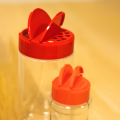
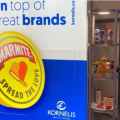
.png)
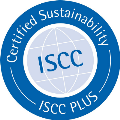

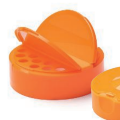

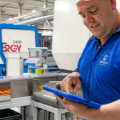
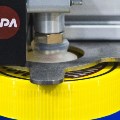
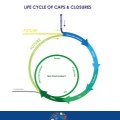
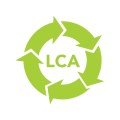
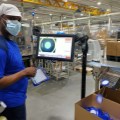
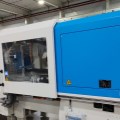


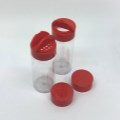

.jpg)
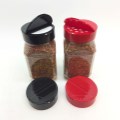
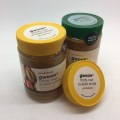
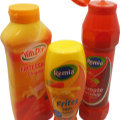

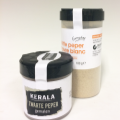
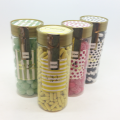

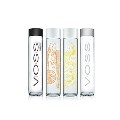








.png)





